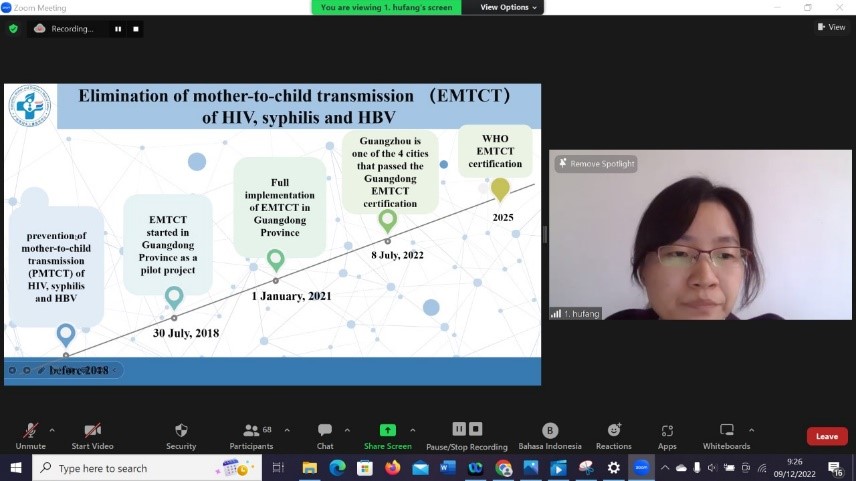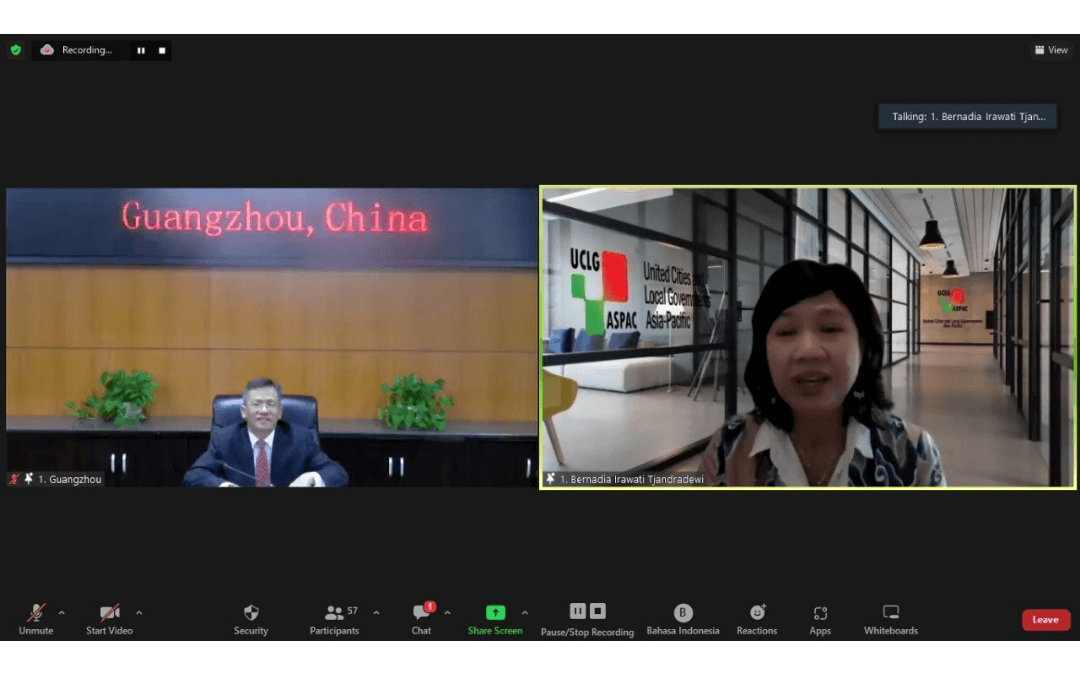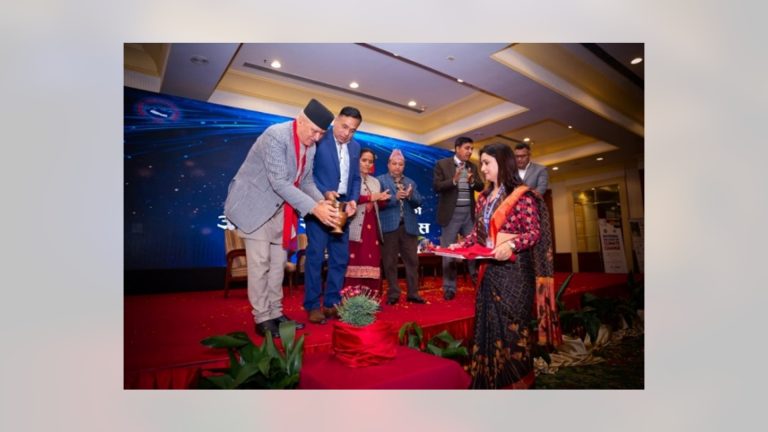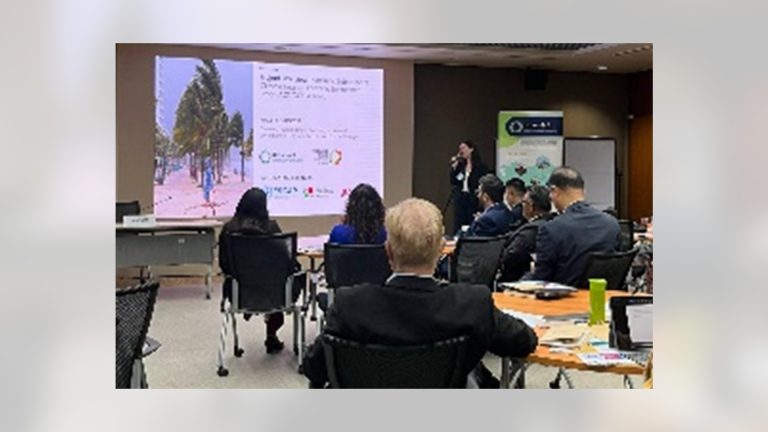December 9, 2022 | UCLG ASPAC and the City of Guangzhou represented by Guangzhou Women and Children Medical Centre (GWCMC) conducted the third webinar entitled “Effective Prevention and Management of Mother-to-Child Transmission of HIV in the Face of Pandemic” on December 9, 2022. This third and final webinar concluded the Memorandum of Understanding (MoU) between the two parties signed as part of Guangzhou’s commitment to support the UCLG ASPAC Standing Committee of Women in Local Governments (SCWLG). Attended by more than 70 participants, the webinar shared knowledge, strategies, and practices from GWCMC in preventing and managing HIV transmission from mothers/parents to children, especially during and post-COVID-19.
Mr. Deng Changxiong, Deputy Director General of the Guangzhou Foreign Affairs Office pointed out that the Chinese government has always put great importance on the prevention and control of HIV/AIDS, and has taken a series of effective measures, which have achieved remarkable results. He highlighted the prevention of HIV/AIDS with the participation of the whole society to eliminate ignorance, prejudice and discrimination against patients with AIDS. Guangzhou as the leading city of SCWLG will continue enhancing the protection of women’s and children’s health rights through cooperation among member cities and local governments in the Asia-Pacific region.
UCLG ASPAC Secretary General Dr. Bernadia Irawati Tjandradewi expressed her appreciation to Guangzhou City for its commitment. She emphasised that HIV is an issue that needs attention in Asia and the Pacific. Future generations will still face the threat of HIV and health service centres in all countries need to anticipate and pay attention to the issue, especially during this COVID-pandemic. She also mentioned that gender inequality is still a major concern. Half of all women with HIV are diagnosed late. Therefore, women need to be actively involved and given the same protection, education, and access to health without discrimination. “We not only treat the disease but also need to treat the people,” she said. Relating to this, she mentioned that World AIDS Day this year is marked under the theme Equalize to call the proven practical actions to address inequalities and help end HIV/AIDS.
Dr. Eddy, MS (OH), Chairman of the Indonesian Association of Occupational Health Doctors, moderated the discussion with Dr. Hu Fang, Deputy Chief Physician of Guangzhou Women and Children Medical Center (GWCMC) as speaker. The presentation of Dr. Hu Fang covered the policies, procedures, and practices in delivering health services to mothers and children with HIV-positive (during the COVID-19 pandemic). Some highlights from the presentation of Dr. Hu Fang are as follows:
- Guangzhou is one of the four cities that passed the Guangdong Elimination of Mother-to-Child Transmission (EMTCT)of HIV, syphilis, and HBV certification;
- Guangzhou applies a “Four-in-one” HIV/AIDS management service system covering Centres for Disease Control and Prevention (CDC), Social Organisations, Community Health Service Centres, and Hospitals;
- Guangzhou applies main measures such as strengthening organisational management and optimising service process during the COVID-19 pandemic; improving laboratory construction and expanding testing coverage; managing the critical links; conducting regular training and supervision to ensure that hospitals provide standardised services; verifying information by multiple departments and analysing project progress regularly; multi-sectoral participation to protect the rights and interests of infected persons; and creating a patient-centred, stigma-free care environment;
- By using these main measures, Guangzhou City has recorded a very low number of HIV transmission cases from mothers and children (no cases have been recorded from 2018 to 2021); and most children with HIV grow healthily.
During the discussion session, medical workers at the Abdul Manap Hospital in Jambi (Indonesia) asked how to carry out HIV testing for newborn babies with a high risk of HIV exposure amidst limited funds. The response took an example from the practice in China, in which commitment from central and local governments is essential to ensuring that this health care is provided without charge. A nurse from the University of Tarumanagera in Indonesia requested sharing to create a stigma-free environment, especially for women and children with HIV. Discussion suggested having massive education and campaign, not only for HIV-positive people but also for the public as a whole such as in a university or factory. Lastly, a public health practitioner from the University of Diponegoro in Indonesia raised the possibility of using nutritional supplements or traditional medicine in China for patients with HIV positive. Responding to that, GWCMC recommended using Antiretroviral Therapy/ART, following the WHO standards.
UCLG ASPAC thanks the Guangzhou Municipal People’s Government for its commitment and support, particularly in supporting the Standing Committee of Women in Local Governments through the organisation of various webinars; also, to all speakers and participants enthusiastically joining the webinar series. Stay tuned for SCWLG’s upcoming activities!













